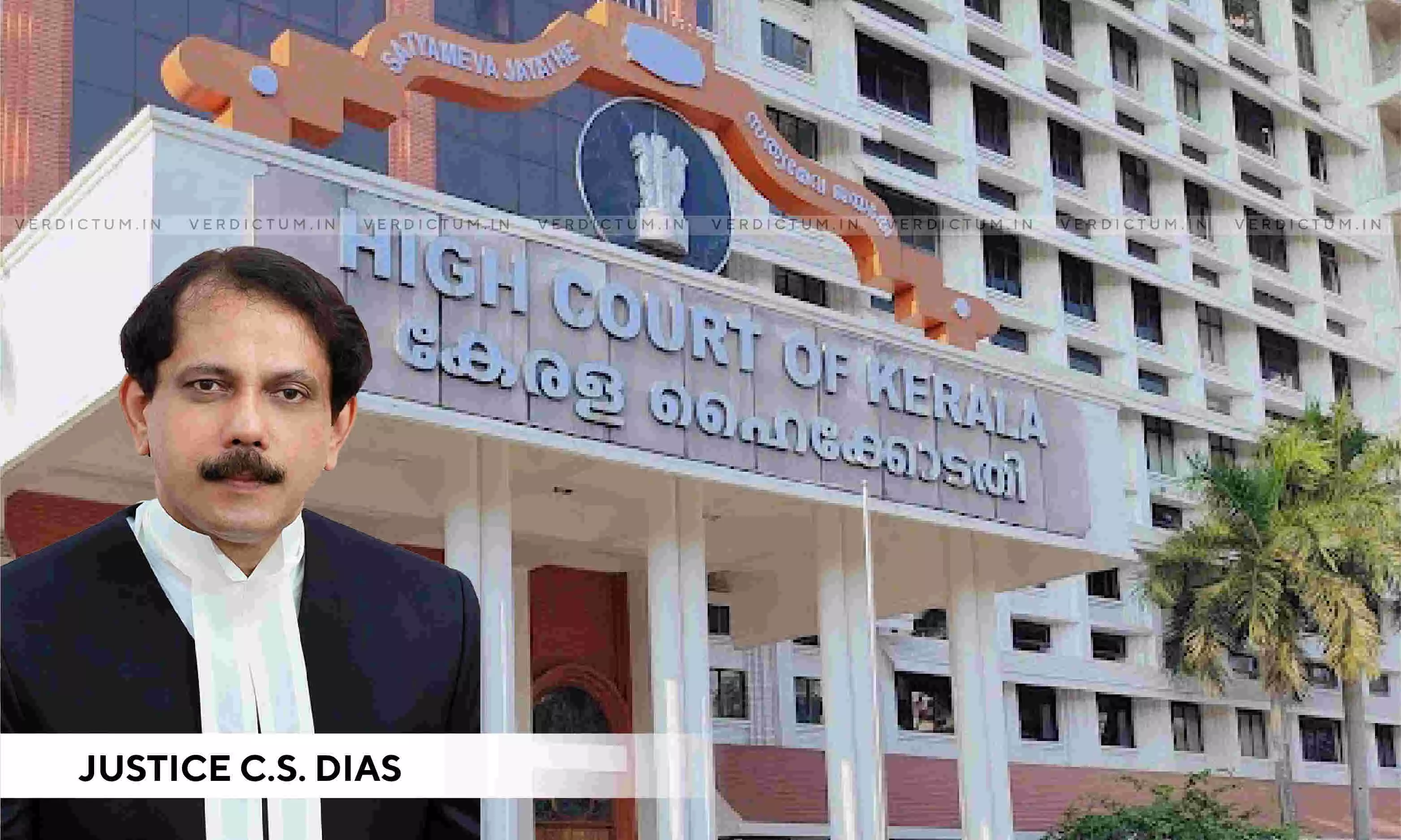
Failure To Put Incriminating Circumstances To Accused Would Vitiate Proceedings From Stage Of Section 313 CrPC: Kerala High Court
 |
|While setting aside the orders passed by the Trial Court and remitting the complaints to the Trial Court to the stage of questioning of the accused under Section 313 (1) (b) of the Code of Criminal Procedure, the Kerala High Court directed the Trial Court to proceed to decide the complaints afresh from the said stage, which will do complete justice and eliminate the prejudice caused to the revision petitioner.
The High Court passed such direction considering the failure on the part of the Magistrate in not questioning the accused under Section 313 (1) (b) of the Code which has resulted in miscarriage of justice, especially when there has been a denial of a fair opportunity to revision petitioner/accused to explain the incriminating circumstances appearing in the evidence against him and other grounds raised in the memorandums.
The High Court held so while considering revision petitions challenging the judgment, whereby the courts have concurrently convicted and sentenced the revision petitioner for the offence under Section 138 of the Negotiable Instruments Act.
A Single Judge Bench of Justice C. S. Dias observed that though “the failure to put the incriminating circumstances to the accused may not ipso - facto vitiate the entire trial, it can be established that the non-compliance of the mandate of the provision would vitiate the proceedings from the stage of Section 313 of the Code”.
The Bench further added that “the salutary intention of the provision is to align with the principles of natural justice, specifically, the "audi alteram partem" principle, which dictates that both sides must be heard; otherwise, the inculpatory materials and circumstances of the exhortation not put to the accused under Section 313 cannot be used against him”.
Advocate T. Madhu appeared for the Petitioner whereas Advocate Blaze K. Jose appeared for the Respondent.
The brief facts of the case were that the Respondent was a businessman and was conducting an Oil Mill. The petitioner had borrowed Rs. 10 lakhs from the Respondent and in the discharge of said liability issued two cheques. When the Respondent presented these cheques in the bank, both were dishonored due to ‘insufficient funds’ in the Petitioner's bank account. The Respondent had issued a statutory lawyer notice which was returned with an endorsement as ‘unclaimed’. Consequently, the Petitioner received a summon for the offense committed under Section 138 of ‘The Negotiable Instrument Act’. The petitioner pleaded not guilty but the Magistrate without questioning the petitioner under Section 313 (1) (b) of the Code of Criminal Procedure proceeded with proceedings and did not let the petitioner present any defense evidence. The petitioner was convicted and sentenced for the same.
Hence, the Petitioner appealed before the Appellate Court, who after re-appreciating the materials placed on record, confirmed the conviction but modified the substantive sentence imposed by the Magistrate.
After considering the submission, the Bench noted that the revision petition was filed while questioning the legality, propriety, and correctness of the previous judgments.
The Bench pointed that Clause (b) of sub-section (1) of Section 313 makes it obligatory for every Court, in an inquiry or trial, to enable the accused to explain the circumstances appearing against him in the evidence, after the witnesses for the prosecution have been examined and before the accused is called upon to let his defense, to question him generally on the case.
Additionally, the Bench explained that the said provision is to be interpreted to the advantage of the accused and not to nail him to any position and as a corollary to benefit the court in arriving at the correct conclusion.
Referring to the case of Jai dev v. State of Punjab [AIR 1963 SC 612], the Bench reiterated that “The ultimate test in determining whether or not the accused has been fairly examined under Section 342 would be to inquire whether having regard to all the questions put to him, he did get an opportunity to say what he wanted to say in respect of prosecution case against him.”
Referring to the Supreme Court judgment in Alister Anthony Pareira v. State of Maharashtra [(2012) 2 SCC 648], the Bench again reiterated that “Failure in not drawing the attention of the accused to the incriminating evidence and inculpatory materials brought in by prosecution specifically, distinctly and separately may not by itself render the trial against the accused void and bad in law; firstly, if having regard to all the questions put to him, he was afforded an opportunity to explain what he wanted to say in respect of prosecution case against him and secondly, such omission has not caused prejudice to him resulting in failure of justice.”
Accordingly, the High Court directed the Trial Court to question the revision petitioner/accused under Section 313 (1) (b) of the Code in the two complaints and proceed to decide the complaints from that stage in accordance with law.
Cause Title: Raju J Vylattu v. P.V. Alexander and Anr. [Neutral Citation: 2023/KER/61453]
Click here to read/download the Order.